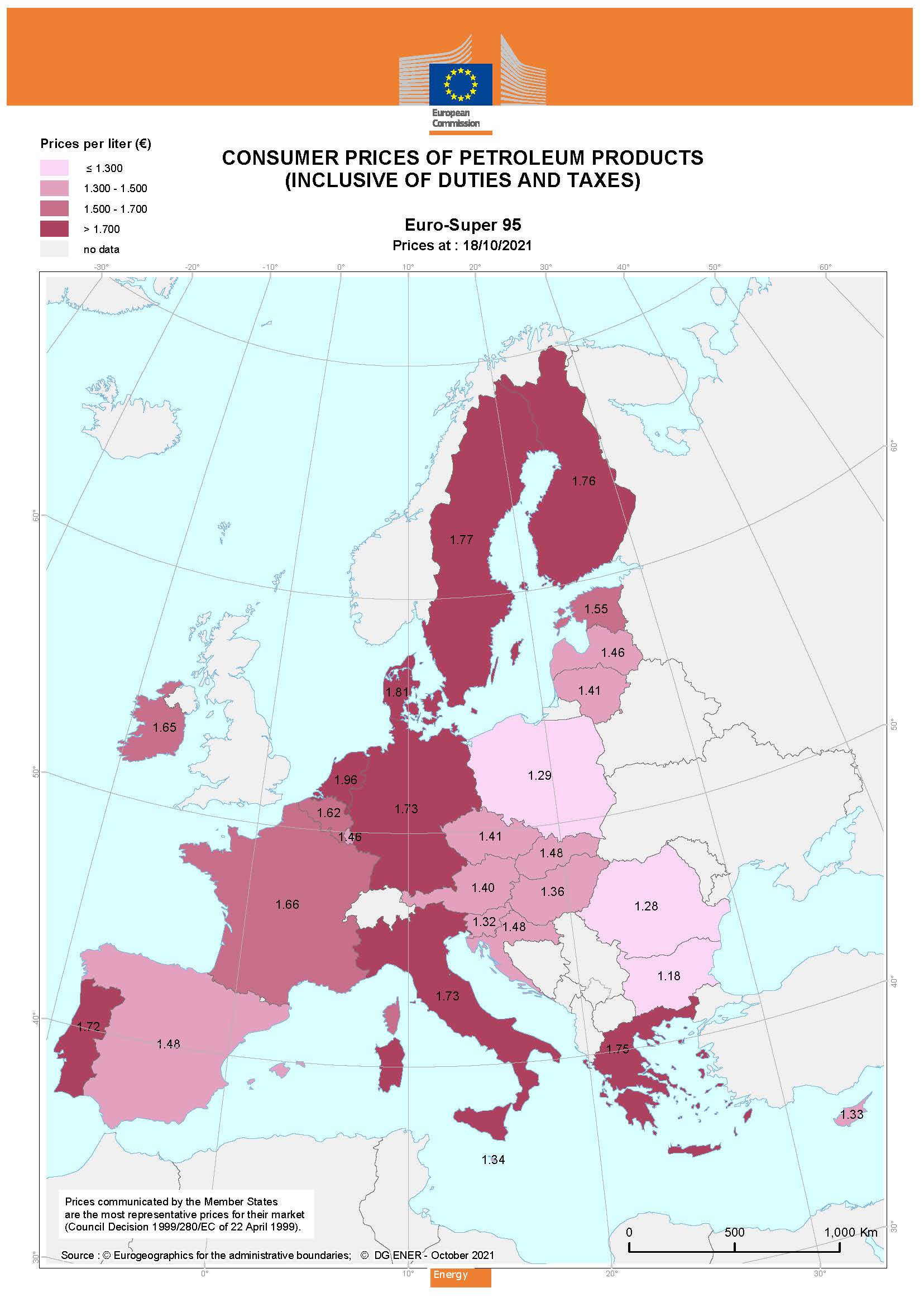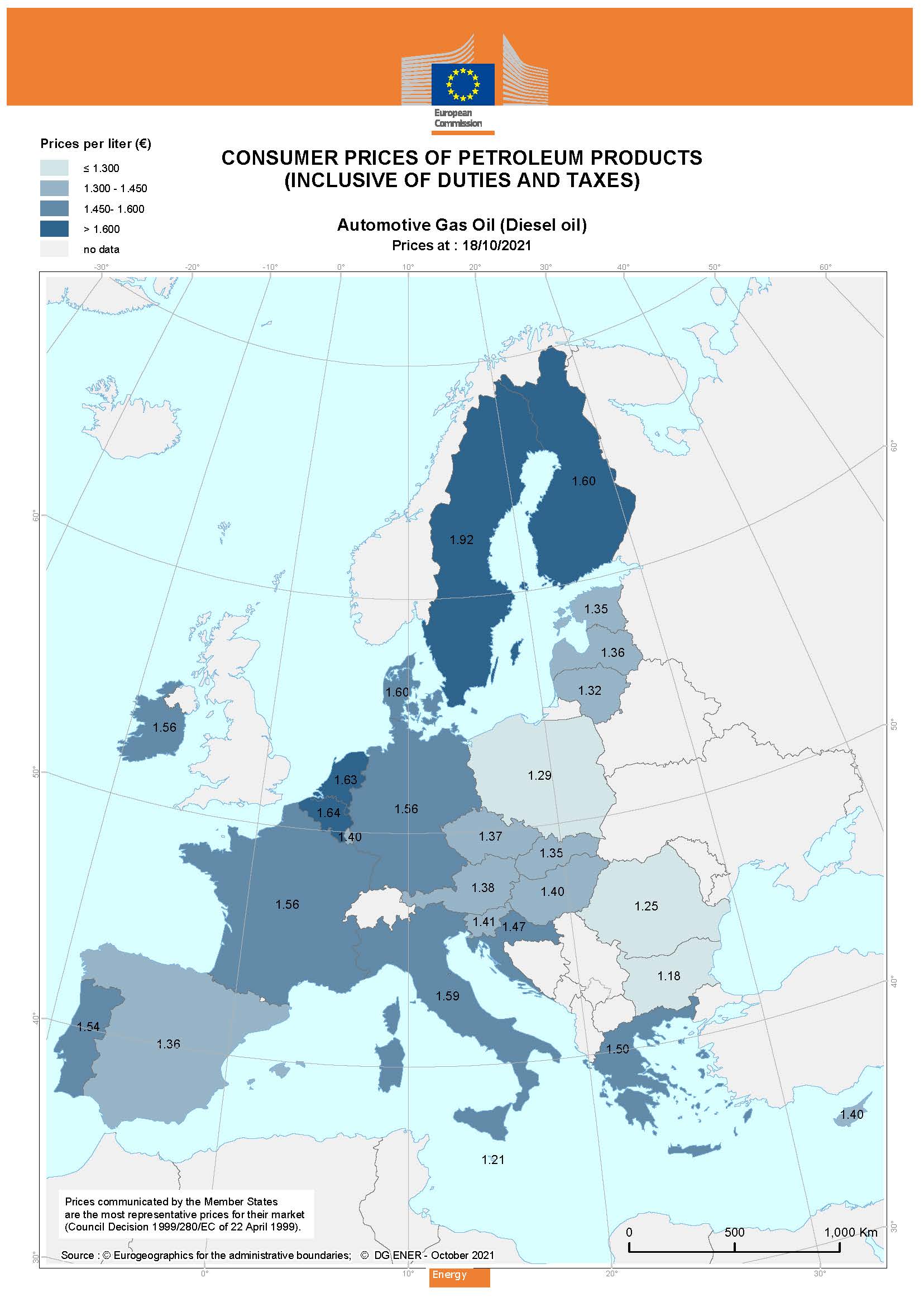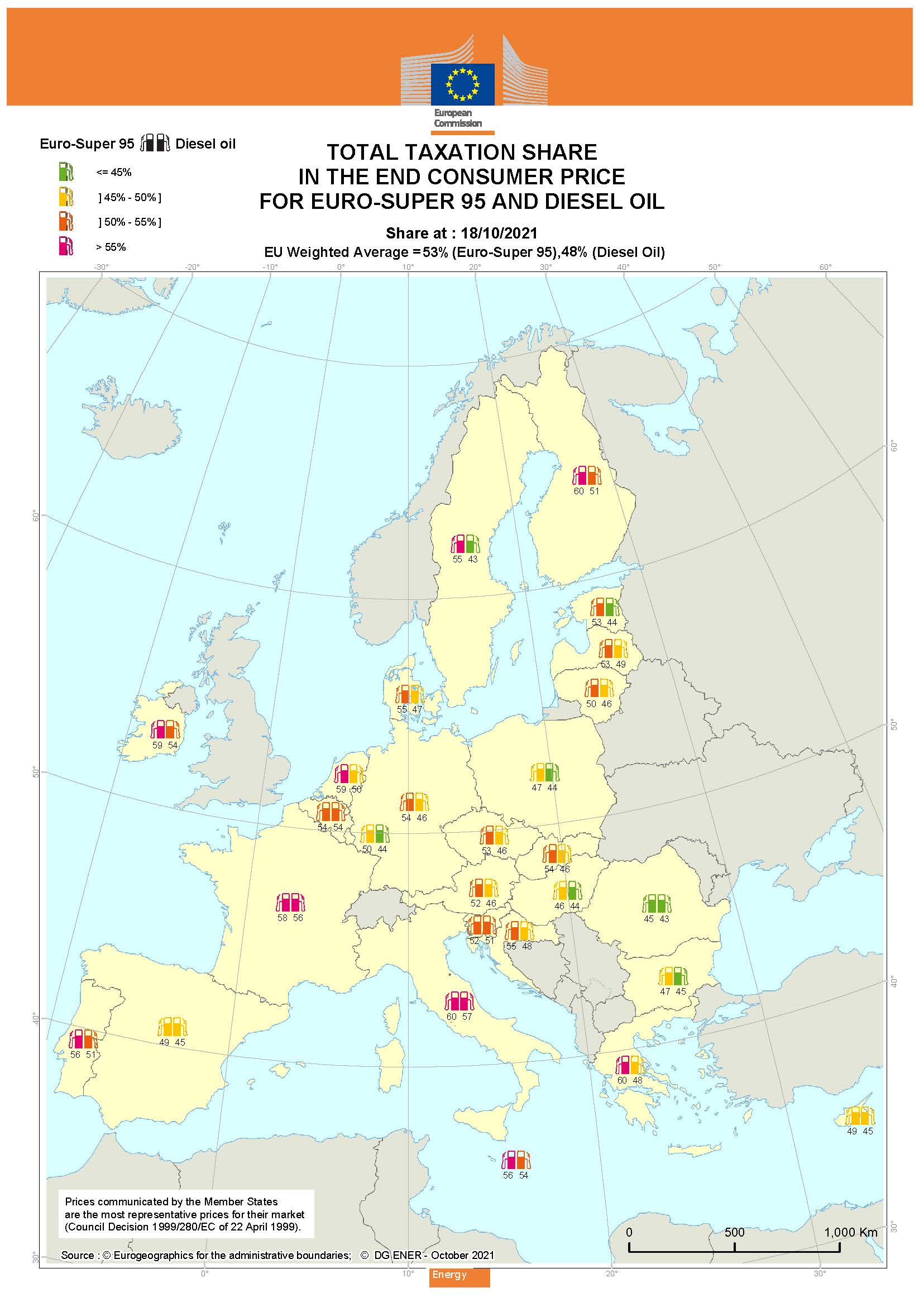Is fuel more expensive in Hungary than the EU average?

Over the past one and a half years, fuel prices have increased by 200 forints (€ 0,56) in Hungary, which is quite significant.
After the coronavirus pandemic hit the world’s economy, fuel prices have started dropping, and by around April and May back in 2020, fuel prices have decreased under 300 forints (€ 0,83) for petrol and an average of 278 forints (€ 0,77) for diesel.
But since then, the economy around the globe started to stabilise, and by October 2021, the same fuel prices have increased in Hungary to an average price of over 500 forints (€ 1.39), Hvg says.
From today, the Euro-Super 95 petrol costs 501 forints (€ 1.39) per litre, while the price of diesel is 512 (€ 1.42). People start to wonder, is that only happening in Hungary?
According to Hvg’s research and the latest data of Eurostat as of the making of this article, it is not.
It is quite the contrary. It seems like the Hungarian prices with around € 1.39 are on the cheaper side of the European Union. Petrol prices in Hungary are the 7th cheapest while diesel prices are more in the middle with 14th cheapest from the 27 countries of the European Union.

Source: Eurostat
As you can see, there are shockingly large differences in the prices in some countries. The most expensive in the Netherlands is almost twice as much as the cheapest, the Bulgarian price.
On average, Scandinavian countries have one of the highest fuel prices, but the Central European region fares well.

Source: Eurostat
Concerning diesel prices, it is very similar. Interestingly, the Bulgarian price is identical to petrol, but it still cost almost half than the most expensive country, Sweden.
The Hungarian price in this regard, although not that bad, is, unfortunately, middle-ranking.
Hvg also examined how high the prices are in Hungary if we exclude the taxes. The situation is now quite the opposite. The price of Euro-Super 95 petrol is the 9th most expensive. If we examine the prices of diesel without taxes, it is even worse. Without the tax, the Hungarian diesel price is the 5th most expensive in the 27 EU countries.
This is since most countries apply a 53% tax on petrol and a 48% tax on diesel, in Hungary, the same taxes are 46% and 44% respectively. Taxes on fuels are only lower in Romania, but not by much. Interestingly, Sweden, which sold diesel for the most, only applies a 43% tax rate on that type of fuel, the same as Romania.

Source: Eurostat
According to Hvg, the most important number is how much fuel people can buy from the average net income of each country. For this, they used the 2020 average income data of Eurostat.
In this regard, Luxembourg is the leader where people can buy 28,246 litres of Euro-Super 95. The second place goes to Austria with over 23,000. Malta and Spain are in the middle, with over 14,000 litres. But Hungary is the 6th from the back where people can only buy shy of 7,000. Bulgaria stands last with 5,416 litres.
Concerning purchasing power of diesel, it is pretty similar. Luxembourg is still the first, with over 29,500 litres. However, Hungary is in a worse position; it is 3rd from the back. Hungarians could only buy 6,763 litres of diesel for the average net income. Bulgaria is last again, with almost identical numbers.
Source: Hvg.hu, eurostat.hu







